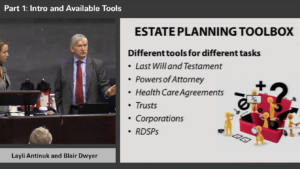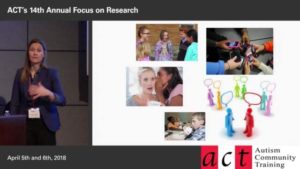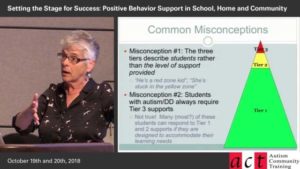Part 1: What is sexual health/sexuality?
Topics Covered:
- Defining sexual health and sexuality
- Sexuality and Autism spectrum
- teachingsexualhealth.ca

Landa Fox, MA, BCBA, Certified Sexual Health Educator
Filmed June 2021 – edited into 12 parts; total 195 minutes
Landa Fox has extensive experience in training family members and community professionals about sexual health development focusing on making sexual health education inclusive and accessible to all. In this fascinating presentation, she shares the process of creating and modifying existing sexual health and relationship education, to the needs of a wide range of autistic individuals.
Landa’s areas of special interest within the area of sexual health education include: how to promote a culture of consent and body autonomy within autism intervention; creating inclusive, accurate, and accessible sexual health education that focuses on individual rights; and advocating for access to sexuality and sexual health for everyone.
In this presentation participants will learn about the following:
- Exploration of developmental norms for sexual behaviors and knowledge.
- Identification of knowledge and skills that may need to be explicitly taught to autistic learners, including concepts central to consent.
- An overview of approaches for assessment and treatment of inappropriate sexual behaviors.
- Discussion of the important intersection of neurodiversity and gender-diversity and how to support people who are LGBTQIA+
Presentation Handout
Supplemental Resources
Presenter Bio
Landa Fox earned a Masters in Special Education with a concentration in autism and developmental disabilities from the University of British Columbia. She is a Board Certified Behavior Analyst and a Certified Sexual Health Educator. Landa lives in the Lkwungen territory/Victoria, British Columbia. She has supported autistic individuals since 2003. Currently, her work focuses on sexual health and relationship education for those with unique learning needs. She works with individuals, families, schools, and community organizations, running an organization called Positive Connections.
Part 2: Typical sexual health development
Topics Covered:
- Sexual health development by age groups
Part 3: Teach the correct names for body parts
Topics Covered:
- Using the proper language
- Getting comfortable with the language
- Safety
Part 4: Privacy
Topics Covered:
- Teaching public vs private
- Allowing privacy
Part 5: Consent
Topics Covered:
- Embedding teaching consent in programs and in life
- Culture of Compliance
- Body boundaries
Part 6: Self-Care & Starting Early
Topics Covered:
- Prioritizing intimate self-care skills
- Menstrual pad change
- Teach it before you need it
Part 7: Inappropriate Sexual Behaviour
Topics Covered:
- What is inappropriate sexual behaviour?
- Prevention is key
- Rule out medical causes
Part 8: Sexual Function and Sexual Topography
Topics Covered:
- Sexual Abuse Disclaimer
- What is Sexual Function?
- What is Sexual Topography?
- Thinking about “Surveillance”
Part 9: Functional Assessment
Topics Covered:
- Intervention Planning
- Setting Events
- Antecedents
- Alternative Behaviours
- Responding to inappropriate sexual behaviour
Part 10: Pornography
Topics Covered:
- Pornography and the Law
- Pornography and family rules
- Why do people access pornography?
Part 11: Identity diversity (LGBTQIA+) and neurodiversity
Topics Covered:
- Overlap between being on the autism spectrum and gender diversity
- Trans and Gender-diverse youth and mental health
- Additional resources
Part 12: Q and A
Topics Covered:
00:00 – What if pictures don’t work?
2:56 – What if families/caregivers don’t consent to sex education?
6:04 – Can you teach autistic children about their or other people’s body language?
6:48 – Teaching functional communication to ask for bathroom to masturbate in school?
9:13 – What do you suggest for someone who has their hand in their pants but have to wash their hands?
11:15 – Safe sites for a 19-year-old who is interested in dating.
14:00 – What to do about masturbating in a public place?
18:53 – Do you need parental consent to engage in education about sexual health?
22:00 – How you can combat negative associations and reduce the fear factor in these conversations?
23:55 – Dealing with difficulty providing privacy?






